Protecting an Archival Heritage: A Question of Trust
The bequest of a heritage, whether material or immaterial, rests on an important emotion, even an attitude or a state of mind: trust. The Augustinian Sisters donated the Hôtel-Dieu de Québec monastery with tens of thousands of objects and documents with the assurance that their intangible intent would be respected and preserved for generations to come. The Fiducie du patrimoine culturel des Augustines was created for this reason. However, behind this legal structure (as a trust) are also human beings, including archivists, whose role is to protect, classify, but also interpret documents bequeathed to the trust. The sisters’ confidence in the archivists is remarkable. This text offers an overview of the importance of this enduring relationship to protect our heritage.
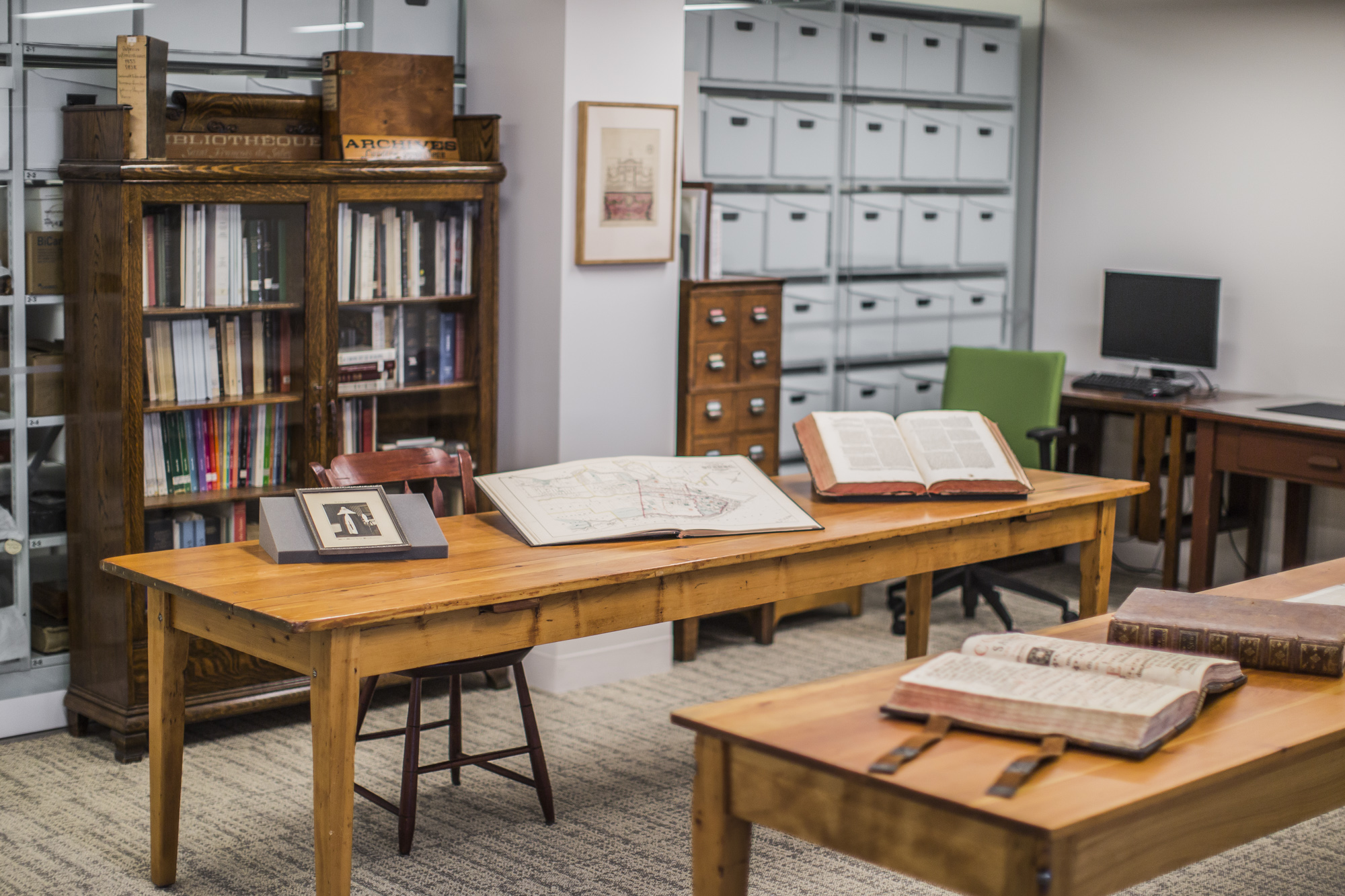
Passing the torch on
Currently, at the Monastère’s Archives Centre, only two archivists have had the privilege of working with the Augustinian Sisters on a daily basis. Archivist Chantal Lacombe has been working for the Augustinian Sisters since 2011. She talked about the passing of the torch by the former Archives Director, Sister Claire Gagnon, who entrusted Ms. Lacombe to preserve the sisters’ history. Ms. Lacombe says she always thinks of this sister, who still helps to process important documents. In addition, Sister Claire Gagnon has an excellent memory; she knew, for example, that a particular document was in a specific yellow box in that filing cabinet. Today, the classification and conservation methods are very different; however, we feel the inspiration that this sister has on her successor’s work.
The archivist of the Hôpital général de Québec monastery, Audrey Julien, agreed about the notion of trust. In fact, she even speaks of a friendship with the monastery director, Sister Hélène Marquis. “It’s not an employee-employer relationship,” she said. Ms. Julien also believes that the sisters see her and Ms. Lacombe as family members. She explained that trust is an explicit part of the job. The fact that the Augustinian Sisters are very interested in their work as archivists probably has an effect on the relationship.
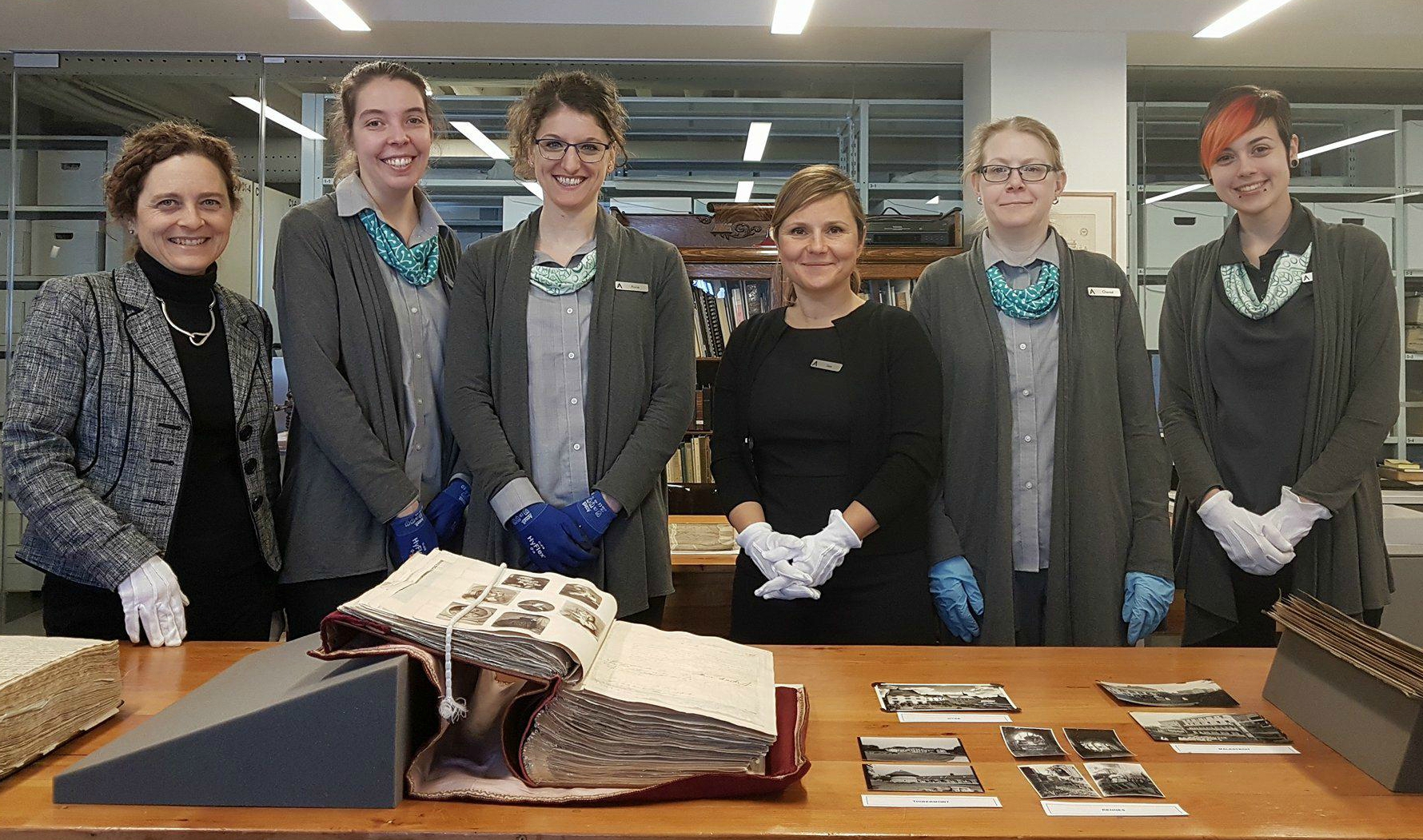
An important transition
The number of Augustinian Sisters in Québec has been in decline for several years now. The passage of a religious community’s heritage to a secular community is in itself a historical moment. Indeed, this transition is tremendously significant since the community took care to ensure that their memory continues. Annie Labrecque, an archivist of the Chicoutimi monastery who works at the Monastère, says that she plays the role of a “transfer belt” between the manager of the archives, a professional located on site in Chicoutimi, and her, on site in Québec City. She ensures that the transfer is done between the community and the Monastère’s Archives Center.
With some projects currently under development, such as a Web portal, Ms. Labrecque contributes to the dissemination of certain treasures according to the rules of archival art. According to her, it is important that professionals take care of this, especially to respect standards and laws related to the field. She reiterated the important bond between the sisters and the Monastère’s archivists. The Augustinian Sisters are also aware that it is important to hire an archivist rather than someone from another specialty.
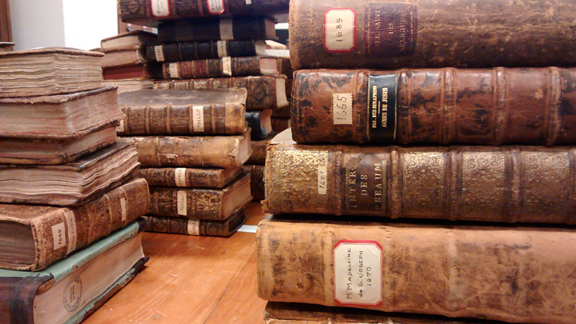
A duty of remembrance
If the life of a hospital sister was a vocation, the life of an archivist is often one of duty. More precisely, a duty to preserve the community’s collective memory. “One day,” said Audrey Julien, “the sisters will no longer be present. From then on, it is even more important to keeping their heritage alive. According to her, “there is a duty to remember how the sisters lived and interacted with us and other sisters”.
The Monastère and its mission must carry on: it all revolves around the Augustinians Sisters. “Without them, we would not have access to this place and heritage—both of which are so rich in history,” said Chantal Lacombe.
The archivist also recalls that the Augustinian Sisters had already developed some of the services still offered today by the Monastère. She names, among others, the hotel service. Long ago, it was possible to sleep at the Monastère at a low cost. There was also a museum.
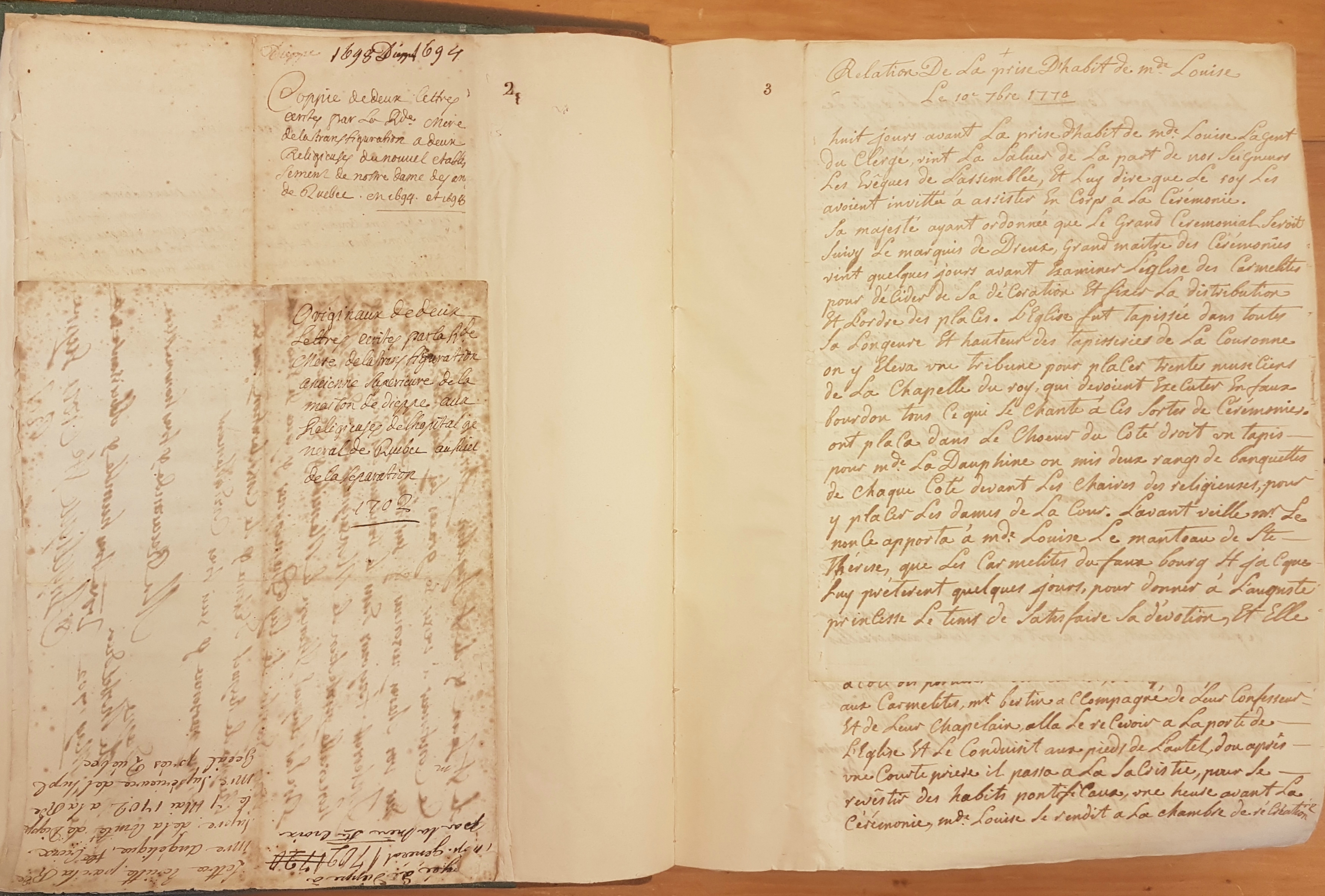
© Archives du Monastère des Augustines
Protecting the sisters’ heritage
Protecting archival documents is central to the archivists’ work. According to Sara Bélanger, historian-archivist and manager of the Archives Center, keeping records requires specific archival material. In addition, there are special environmental conditions required for keeping the archives in good condition for years to come.
For example, archivist Annick Tremblay described the importance of making storage boxes out of special materials, such as non-acidic paper. This allows for the protection of an old book dating back to 1665 or another from 1744. According to her, such a box offers the possibility of adequately transmitting these books to future generations. In addition, if a work is to be restored by a specialist located elsewhere, a box made according to archival standards will allow for safe transportation.
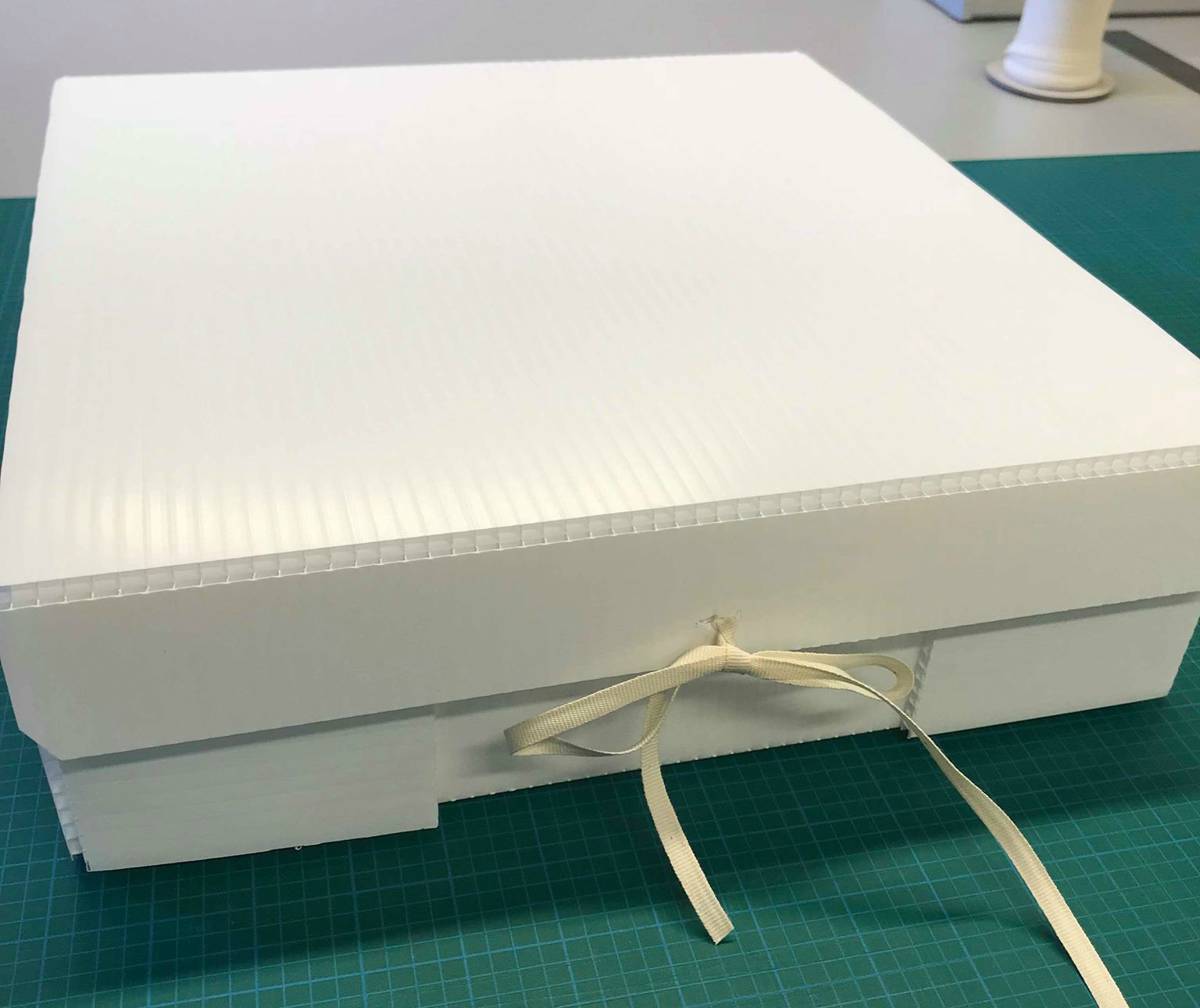
Ms. Bélanger says that the state of the Monastère’s archives is attributed to the conservation methods used. While the work of archivists has been exemplary over the years, the Augustinian Sisters provided quality archives from the very beginning. “It is as though the documents were written yesterday—and not 200 years ago,” she said. It is therefore advantageous to continue the sisters’ work so that current and future researchers can have the privilege of consulting carefully preserved documents.
***
The Augustinian Sisters’ bequest could not have had its current heritage value without the feeling of trust that the sisters felt towards their successors. This trust also explains the sense of duty of the Monastère’s Archives Center team. The members of this team value the sisters’ trust, which in turn drives their dedication. It is thanks to their behind-the-scenes work that the sisters’ treasures, which represent Québec’s history and heritage, can be passed on to future generations.
Discover the Archives web site (in french only).
Hugues St-Pierre

